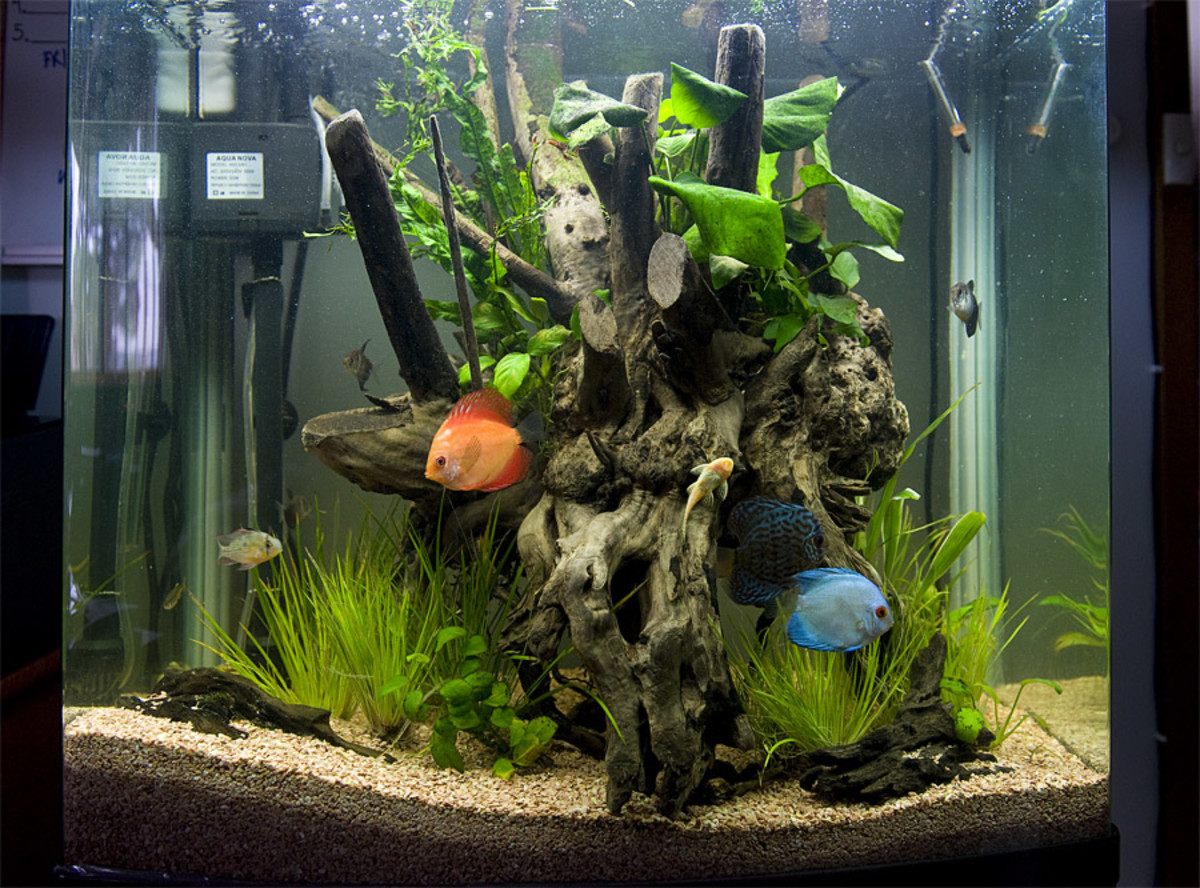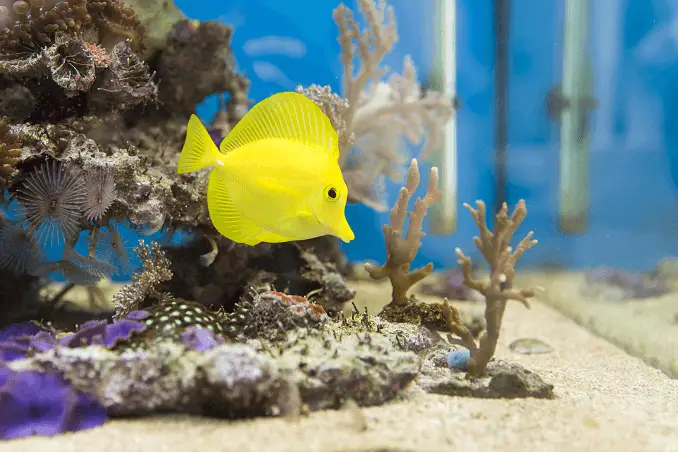Originally posted on May 23, 2023 @ 11:00 pm
Last Updated on 7 hours by admin
Aquariums are a popular way to bring a piece of the ocean into our homes, and fish are often the centerpiece of these aquatic displays. However, there has been growing concern over the ethics of keeping fish in aquariums. While many people enjoy the beauty and tranquility of watching fish swim in their tanks, others argue that it is cruel to keep these animals in captivity. In this article, we will explore the ethical considerations surrounding this issue and examine both sides of the debate.
Keeping fish in aquariums can be a controversial subject. While aquariums can provide a beautiful display and educational experience, some people argue that it is unethical to keep fish in captivity. The main concerns are the limited space for the fish, the potential for stress and disease, and the impact on wild populations. However, others argue that aquariums can provide a safe and healthy environment for fish, and that they can help to educate the public about marine life conservation. Ultimately, it is up to each individual to decide whether the benefits outweigh the potential ethical concerns.

The Ethics of Keeping Fish in Aquariums: A Deeper Look
Aquariums are a popular addition to many homes and offices, providing a glimpse into the underwater world. The colorful and fascinating creatures that swim in these tanks can be mesmerizing, but the ethical implications of keeping fish in a confined environment are often overlooked. In this article, we will explore the ethics of keeping fish in aquariums, examining both the positive and negative aspects of this popular hobby.
The Benefits of Keeping Fish in Aquariums
Keeping fish in aquariums can have many benefits. For one, it can help people develop an appreciation and understanding of aquatic life. Watching fish swim in their natural habitat can be calming and therapeutic, reducing stress and anxiety. Additionally, aquariums can be educational, teaching children and adults alike about different species of fish and their behaviors.
Aquariums can also provide a home for fish that are in danger of extinction or that have been injured and cannot survive in the wild. These fish can be cared for and protected in a controlled environment, which can help to ensure their survival.
The Negative Impacts of Keeping Fish in Aquariums
While there are benefits to keeping fish in aquariums, there are also negative impacts that need to be considered. Fish are complex animals that require specific conditions in order to thrive, and aquariums can be challenging environments to maintain. Poor water quality, inadequate space, and lack of stimulation can all have negative effects on the health and wellbeing of fish.
Additionally, many fish that are sold for aquariums are captured from the wild, which can have devastating impacts on wild populations. The process of capture and transport can be traumatic for fish, and can also damage fragile ecosystems.
The Ethical Considerations of Keeping Fish in Aquariums
When considering the ethics of keeping fish in aquariums, it is important to weigh the benefits against the negative impacts. While aquariums can provide a glimpse into the underwater world and can help to protect endangered species, they can also be stressful environments for fish and can contribute to the depletion of wild populations.
To ensure that the impacts of keeping fish in aquariums are minimized, it is important to provide adequate space and stimulation for fish, and to maintain high water quality. Additionally, it is important to consider the source of the fish, and to avoid purchasing fish that have been captured from the wild.
The Debate Over Aquariums
There is ongoing debate about the ethics of keeping fish in aquariums. Some argue that aquariums are cruel and that fish should be left in their natural habitats, while others believe that aquariums can be beneficial for both fish and humans.
Those who argue against aquariums point to the negative impacts on fish, the stress of captivity, and the depletion of wild populations. They also argue that aquariums can perpetuate the idea that animals are objects for human entertainment and that they can contribute to a lack of empathy for other living beings.
Others argue that aquariums can provide a valuable educational experience and can help to protect endangered species. They point to the fact that many fish sold in aquarium stores are bred in captivity, and that proper care can ensure that fish are healthy and happy in their enclosed environment.
The Future of Aquariums
As with any controversial topic, the future of aquariums is uncertain. While there are certainly ethical concerns associated with keeping fish in captivity, there are also benefits to be gained from these environments. As our understanding of fish behavior and needs continues to evolve, we may be able to find ways to create more sustainable and ethical aquariums that benefit both fish and humans.
In the meantime, it is important for aquarium owners to be responsible and to prioritize the health and wellbeing of their fish. This means providing adequate space, proper nutrition, and a stimulating environment, and avoiding purchasing fish that have been captured from the wild.
The Bottom Line
The ethics of keeping fish in aquariums is a complex issue that requires careful consideration. While there are certainly benefits to be gained from these environments, there are also negative impacts that must be taken into account. Ultimately, the decision to keep fish in an aquarium is a personal one, but it is important to do so responsibly and with a deep respect for the animals in our care.
Frequently Asked Questions
What are the ethical concerns of keeping fish in aquariums?
Aquariums have been a popular form of pet-keeping for decades, but the practice is not without its ethical concerns. One of the main concerns is that fish are often taken from their natural habitats and placed in confined spaces, which can cause them to experience stress and health problems. Additionally, the fish may be bred in captivity, which can lead to genetic problems and reduced quality of life.
On the other hand, some argue that aquariums provide a controlled and safe environment for fish, protecting them from predators and other dangers. Many aquariums also engage in conservation efforts and education programs to help protect fish species and their natural habitats.
Is it ethical to keep fish in small aquariums?
The size of an aquarium is an important consideration when it comes to the ethics of fish-keeping. Keeping fish in small aquariums can be problematic, as the fish may not have enough space to move around and engage in natural behaviors. This can lead to stress, boredom, and health problems.
However, there are some species of fish that naturally live in small bodies of water, and they may thrive in smaller aquariums as long as their needs are met. It is important to do research on the specific species of fish before deciding on an appropriate aquarium size.
What can be done to ensure the ethical treatment of aquarium fish?
There are several steps that can be taken to ensure the ethical treatment of aquarium fish. First and foremost, it is important to research and choose appropriate species of fish for the size and type of aquarium. Providing proper nutrition, water quality, and enrichment is also crucial for the health and well-being of the fish.
Additionally, it is important to obtain fish from reputable sources that do not engage in harmful practices such as overfishing or illegal collection. Supporting conservation efforts and education programs can also help protect fish and their natural habitats.
Are there any alternatives to keeping fish in aquariums?
There are several alternatives to keeping fish in aquariums, such as creating natural habitats in ponds or other outdoor spaces. This can provide a more natural environment for fish while also allowing for natural filtration and ecosystem balance.
Additionally, virtual aquariums and live-streaming options provide a way to enjoy the beauty of fish without the ethical concerns of keeping them in captivity. However, it is important to note that these alternatives may not provide the same level of interaction and enjoyment as a physical aquarium.
What should be done with aquarium fish when they outgrow their tanks?
It is common for aquarium fish to outgrow their tanks, and it is important to have a plan in place for what to do in these situations. One option is to upgrade to a larger tank, but this may not always be feasible.
Another option is to donate the fish to a local aquarium or pet store that has appropriate facilities for the species. It is important to ensure that the new environment is suitable for the fish and that they will be well-cared for. Under no circumstances should fish be released into the wild, as this can cause harm to both the fish and the natural ecosystem.

Is fishkeeping ETHICAL?
In conclusion, the ethics of keeping fish in aquariums is a complex issue with valid arguments on both sides. While it is important to consider the welfare of the fish and provide them with suitable living conditions, aquariums can also serve as educational tools and promote conservation efforts.
As responsible pet owners, it is crucial to research and understand the specific needs of the fish we keep in captivity. Providing a suitable environment, proper nutrition, and regular care can go a long way in ensuring the health and wellbeing of our aquatic friends.
Ultimately, the decision to keep fish in aquariums should be made with careful consideration and a commitment to providing the best possible care. By balancing the benefits and drawbacks, we can create a responsible and ethical approach to fish keeping that benefits both the fish and their human caretakers.
